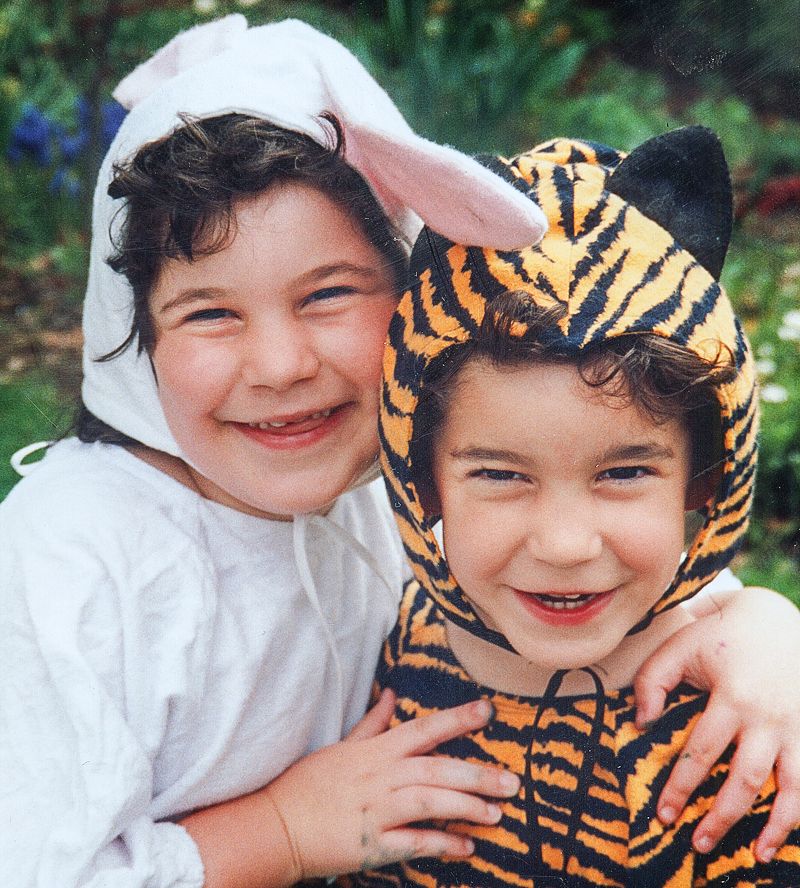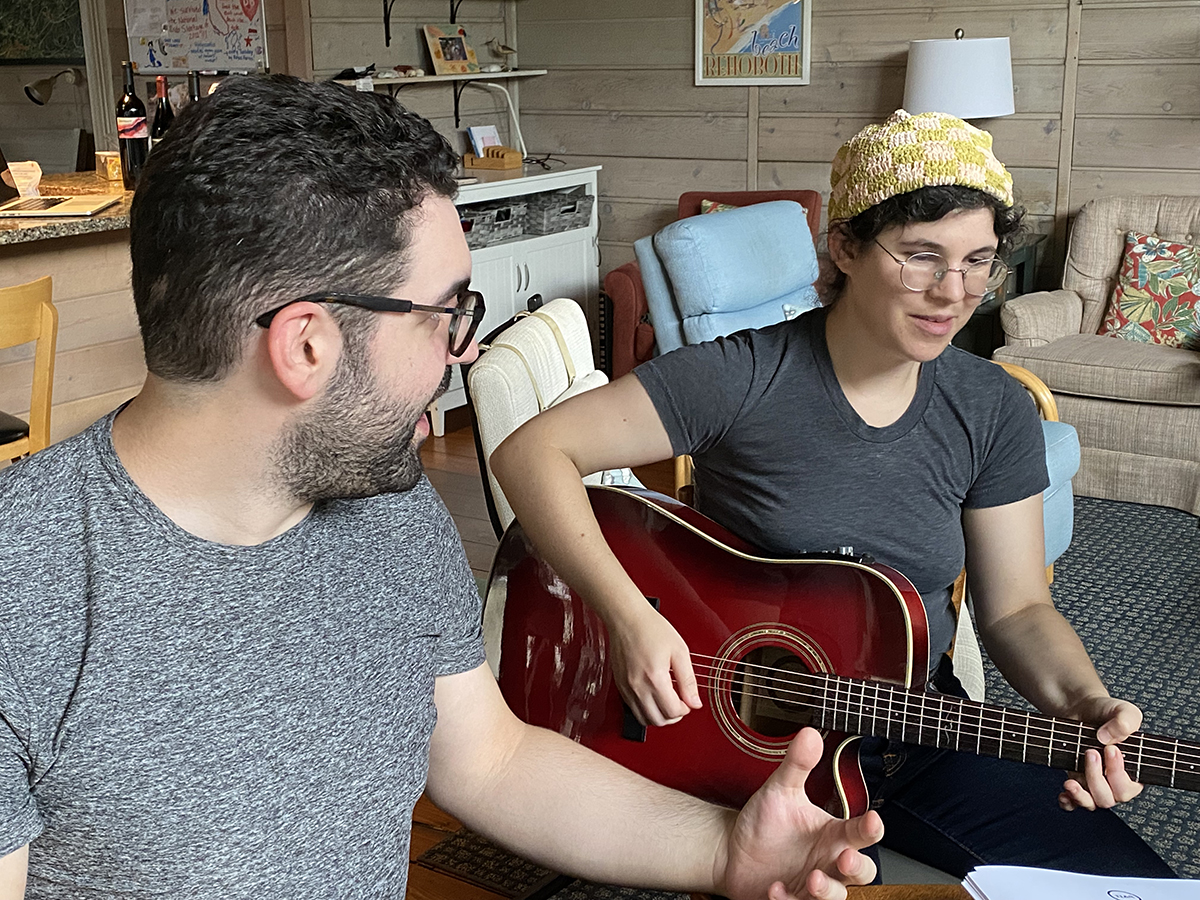Having a baby (or two) is a life-changing event, but raising children is a life-long lesson about inadequacy. Here is this brand-new thing, dependent entirely upon your care and learning all your strengths and weaknesses despite your best efforts to teach them to do as you say, not as you do.
As children start growing, you realize they have their own personalities, their own preferences, and their own agendas. As time goes by, they develop their habits, learn things from their peers and media, become absolutely positive they know more than you do, and begin challenging all of the rules and philosophies you tried to teach them. Ultimately, you must embrace the person they’ve become and let them go, or they leave anyway.
In other words, your children are just like your employees.
Raising children has taught me valuable lessons that apply to running a business. Maybe the most critical is patience. Before I had children, I thought I was patient. But building patience is like building muscle, requiring frequent exercise, and babies are a good workout. When both kids were infants, even though we were lucky that neither was particularly colicky, they could sometimes be inconsolable. During the worst moments, I reminded myself about stories of “shaken baby syndrome” and resisted the urge to go ballistic—excellent training for work, where clients, vendors, and new staff can be just as cranky.

I’ve also learned that if you want to be unselfconscious and comfortable, you must accept that your true self will be exposed, whether you are a parent or a boss. One day, holding toddler Rebecca, Helen accidentally dropped something and impulsively said, “shit!” Realizing that Rebecca was right there, she added, “…drip, shoot!” to cover her swearing. A little later, Rebecca was playing, broke a crayon, and happily said, “Shit, drip, shoot!” It’s no wonder that grown-up Rebecca swears like a sailor when only family is around.
If you can’t be yourself, or at least a tolerably civil version, you can’t be comfortable enough to be fully creative, and you can’t be fully in the moment when you’re busy self-censoring your thoughts. Being yourself is one of the perks of running a business, but that also means you have to be worthy of inspiration. You’re not perfect, and at least you can sheepishly admit that you’re flawed—just like everybody.
There’s a life lesson in accepting your faults and mistakes and forgiving them in others. Some things you just can’t help, and others are moments of stupidity or inattention that you can’t undo. With kids, it’s part of growth and expected. In those moments, I have tried to approach the problem with mild exasperation and enough self-deprecation about my own lapses to make it a learning opportunity.
For adults, it’s somehow considered a weakness to admit mistakes, but it’s worse to try and cover them up. It is harder to address problems with your staff when you can’t make them stay in their room or take away their phones, but being open and understanding works wonders at cementing trust. You want to tell your children you love them no matter what, and you want everyone at work to feel everything will be okay if they are straightforward and honest. Rebecca has told me that was something she remembered when she managed her own crew.
The most important thing I learned as our children grew is that many, many things can’t be controlled, which should be a good thing. At some point, you hear your kids crack a joke, make a pun, or explain a considered opinion that surprises you, and you realize, “whoa, they are no longer little copies of ourselves, and they’ve gone beyond our influence.”
Even if you could micromanage everything at work, inhibiting creativity and experimentation only hurts the studio’s product and makes people unhappy. Teaching responsibility and self-sufficiency are not just the most important skills you can impart to your children—it’s good for business. It is nice to think that you have significantly influenced their lives, but that should be part of the air they breathe.
Over forty years we have had more than 50 employees, but never more than 9 at one time. That is a lot of coming and going; and some of the exits have been more bittersweet than others. Some AURAS alumni have gone on to grow their own studios, some have left the design business altogether, and a few have started at AURAS and then pursued successful careers at other places.
AURAS has never been an easy environment for some people. Working in a big, open space, a demand for high level of technical skill, and our propensity to work directly with clients drove new hires away after just a few days, or the lack of structure was too much of a challenge for poor self-starters. Staff who couldn’t fit in would leave after a while, and occasionally they took clients with them, but people who like this environment have stayed for years, starting in production roles, and graduating to senior designers. Watching these people grow, helping them learn new skills and take responsibility for their time and work gives me a paternal pride in them. Still, it has always surprised me how much I affected employees, both good and bad. A few have told me, even when I was letting them go, that I was the best boss they ever had. And a few had less pleasant things to say, reminding me of things I said that I didn’t even remember.
Growth in skill or maturity is always about finding yourself, not trying to make other people happy. Sometimes you need to take some big heartbreaking steps. Longtime employees leave for different challenges, clients take new jobs, and you never hear from them again.
For your children, the heartbreak is realizing they’re growing up and away from you, even if that is exactly what you hope they will do. The moment that six-year-old Steven refused to hold my hand as we crossed the street, or watching, as we drove away, Rebecca sitting on the sidewalk waiting to check into her freshman dorm, count as big steps etched in my memory.

Watching Rebecca and Steven become adults with their own lives, creative work, and relationships has been the humbling and proudest parts of my life. They are happy siblings who enjoy each other’s company, share many friends, and encourage each other to succeed. Children inevitably become independent, and if you are lucky, at least you see things that you know you inspired. You made a difference and hopefully haven’t screwed them up too much.